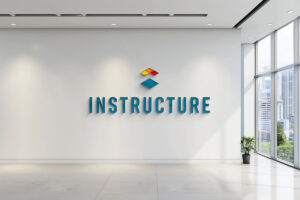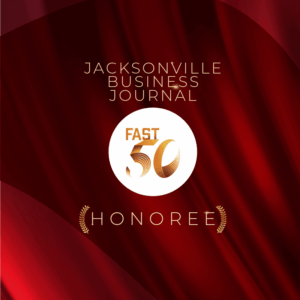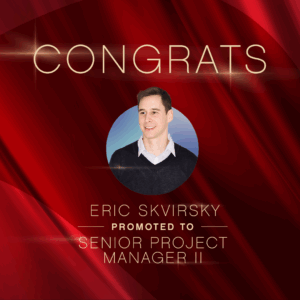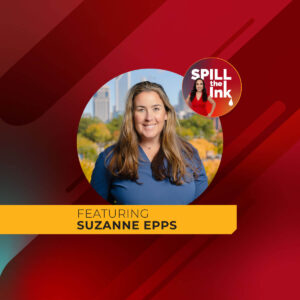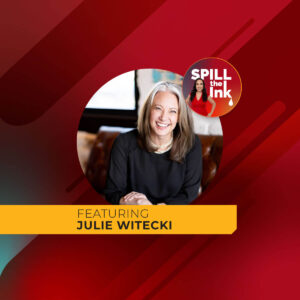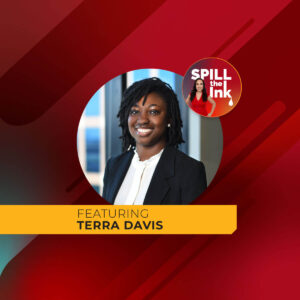
Inksights Blog : The Reputation Ink Blog
Why Authority, Not Expertise, Wins in the Age of AI
AI can replicate expertise. But only human authority builds trust. Here’s how to stand out.
AI has changed the content game.
For years, professional services firms relied on a steady stream of blog posts, client alerts and insight pieces to showcase their expertise. But now, artificial intelligence can generate “smart-sounding” content in seconds — and suddenly, even the most polished article isn’t a guaranteed differentiator.
This shift brings both opportunity and risk. On one hand, content is easier and faster to produce. On the other, the barrier to looking credible has never been lower.
In this new era, just having expertise isn’t enough. To earn trust, firms must move beyond what they know and focus on how that knowledge is perceived, validated and discovered. Authority (not expertise alone) has become the defining currency of credibility.
AI makes sounding smart easier — so proving authority becomes the real differentiator.
This post kicks off a multi-part series exploring how professional services marketers can evolve their strategies in response to AI’s growing role in content creation. First, let’s ground ourselves in the fundamentals.
Redefining credibility-based marketing
Credibility-based marketing is built on trust, not just visibility. It’s the practice of demonstrating genuine expertise through third-party validation, real-world experience and strategic thought leadership. This kind of credibility is essential in professional services, where clients often choose firms based on reputation, trust and past performance — not just capabilities.
Firms have long relied on tools like white papers, blogs, case studies and referrals to establish credibility. These assets worked because they made expertise visible and concrete. But that’s no longer enough. Today, credibility is shaped just as much by how and where your expertise shows up publicly.
Marketing credibility in 2025 means being recognized by others, not just talking about yourself.
When AI writes the content, what sets you apart?
AI tools can now generate content that mimics the tone, structure and syntax of human writing. They can summarize trends, draft blog posts and create entire content calendars in minutes. It’s impressive — and it’s everywhere.
This means your firm’s thought leadership is no longer just competing with peer firms. It’s competing with algorithms.
And that shift has consequences. We’re already seeing content saturation, lower barriers to entry and growing skepticism among buyers. When everyone sounds smart, buyers are left wondering: Who should I actually trust?
Authority is the new trust signal
Buyers aren’t just consuming content; they’re vetting the people and firms behind it. In a world flooded with polished AI-generated copy, they’re looking for proof that the insight comes from experience, not automation.
Authority answers that call. It’s what separates surface-level credibility from real-world influence. And it’s not something AI can manufacture.
You’ll recognize real authority by signals like:
- A partner quoted in respected industry media outlets
- A practice leader who speaks regularly at national conferences
- A firm with standout client case studies and a reputation that speaks before they do
These trust signals — authorship, visibility, validation — are increasingly what buyers rely on when making decisions. One framework I often return to in this work is:
“Expertise + Visibility + Trust Signals = Authority in the Age of AI”
This equation has become a strategic touchstone for helping clients and their subject-matter experts rethink what really makes their content credible.
I’ve worked with senior leaders who were highly respected inside their firms — leading major client relationships, mentoring rising talent and shaping high-stakes strategy. But if you searched their names online? Nothing. No bylines, no media mentions, no speaking appearances. In a world where buyers expect to research and validate the people they hire, that kind of invisibility is no longer neutral. It’s a missed opportunity to build trust before the first conversation even happens.
And that’s the disconnect many firms are facing right now. They’re investing in content, sometimes even at scale, but missing the bigger picture. That brings us to one of the most persistent challenges in professional services marketing: sameness.
Stop chasing volume — start cultivating trust
For many firms, their content strategy has defaulted to a numbers game: publish more blog posts, hit more keywords, check the frequency box. But that approach is losing its edge. Not just because AI can do it faster, but because everyone is doing it and most are saying the same things.
Let’s be honest: sameness is not a new problem in professional services. Too many firms lean on messaging that sounds unique but isn’t. Phrases like “our people make the difference” or “we’re committed to client service” might be true, but they’re also what everyone else is saying.
AI simply accelerates that problem, allowing firms to produce more of the same at scale.
Firms that rely on templated, SEO-driven content may find that they’re no longer building credibility — they’re blending into the noise. And that carries real risk: losing visibility to more authoritative competitors, eroding trust with prospects, or damaging their reputation with content that comes off as generic or disconnected.
How to build authority that AI can’t fake
So what’s the alternative? It starts with a shift in mindset — from content creation to credibility cultivation.
Firms must invest in strategies that position their experts as visible, validated leaders in their field. That includes earned media, thought leadership with a strong point of view, speaking engagements, podcast appearances and awards programs. And it means publishing content that reflects real human insight, not just recycled takes or SEO filler.
At Reputation Ink, we help professional services firms navigate this shift. That often means guiding teams to rethink what makes their content worth trusting and building systems to ensure their authority shows up consistently in the places that matter.
Stay with us: evolving your strategy for the age of AI
This is the first in an ongoing series unpacking how AI is reshaping professional services marketing and what firms must do to lead with clarity, credibility and trust.
In the coming posts, we’ll dig into what makes thought leadership resonate in today’s environment, how AI is influencing the buyer journey, and why credibility signals like earned media, expert visibility and original insight matter more than ever.
In the meantime, take stock:
Is your firm’s content strategy building real authority — or just adding to the noise?
Related B2B Content
How High-quality Content Helped Instructure Increase Lead Generation in a New Market
Reputation Ink | Mar. 7, 2025
Positioning a New Energy Company and Helping It Grow With Quality Content and PR
Reputation Ink | Oct. 7, 2024

